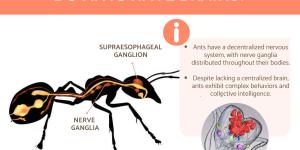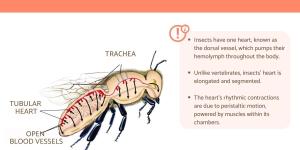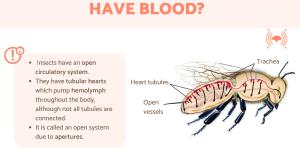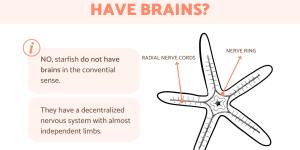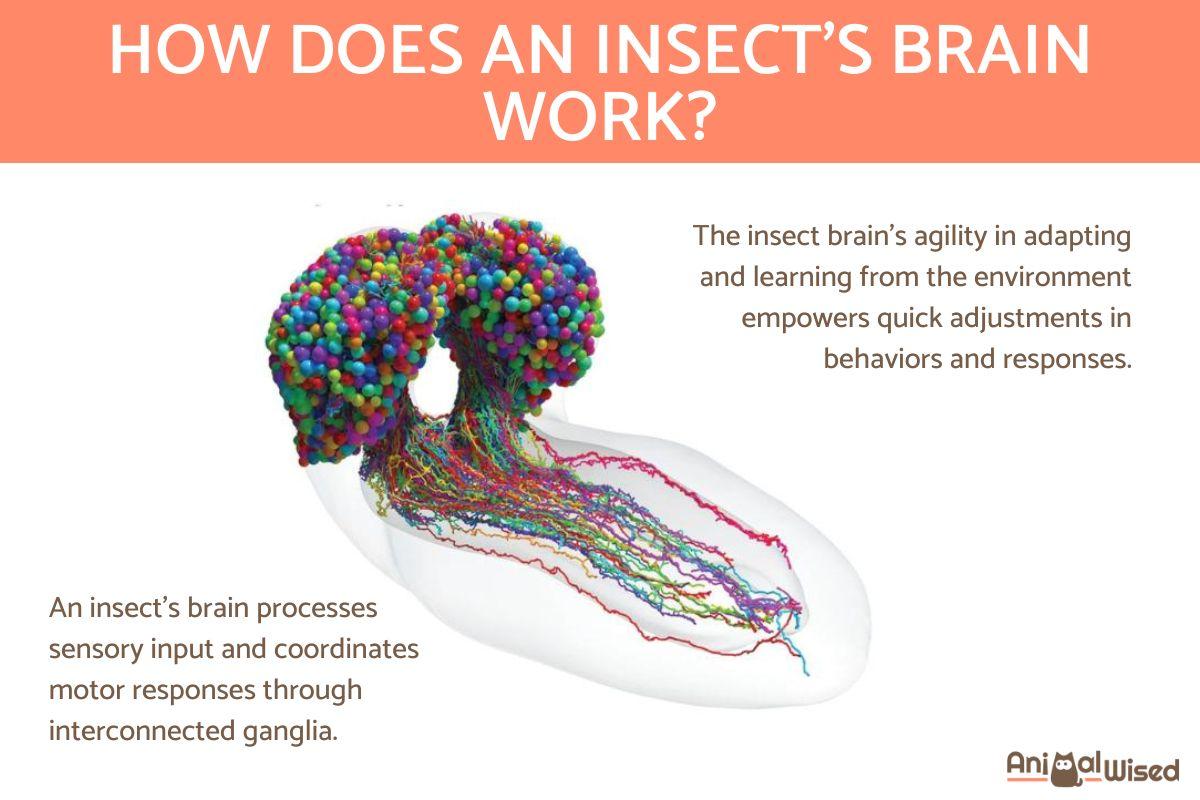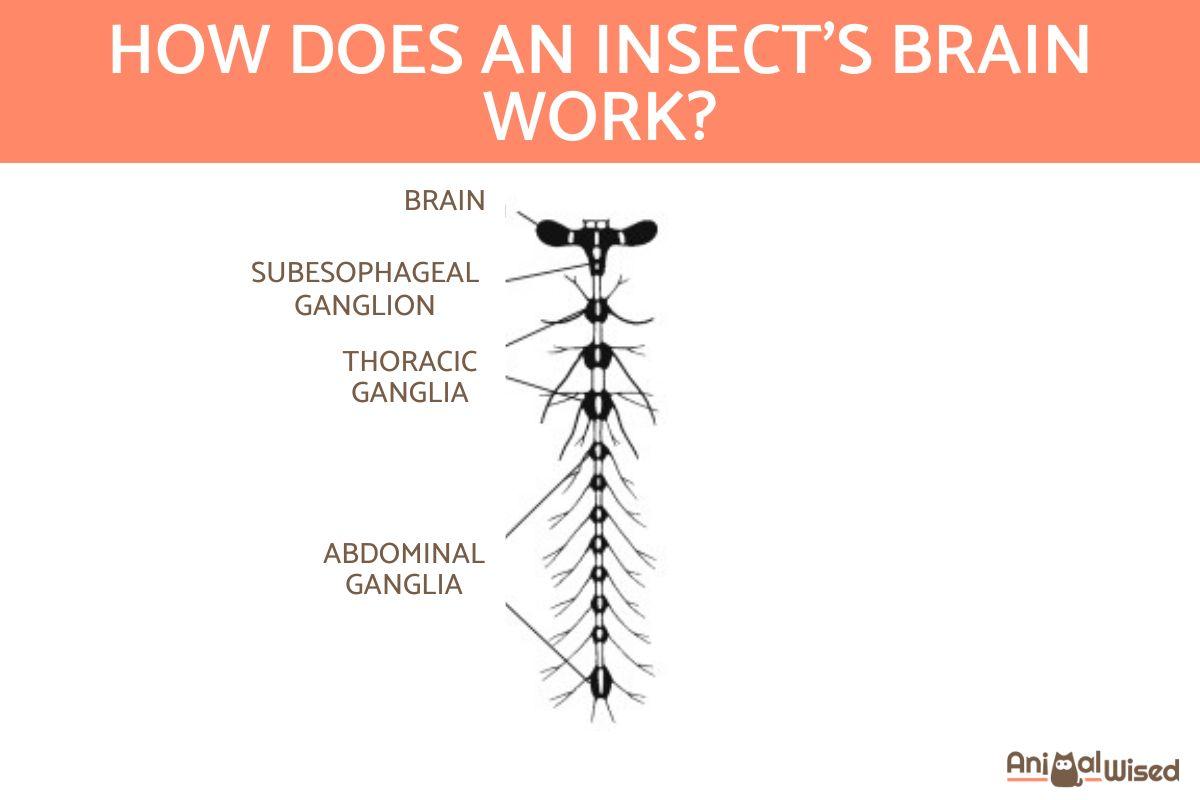Do Insects Have Brains?

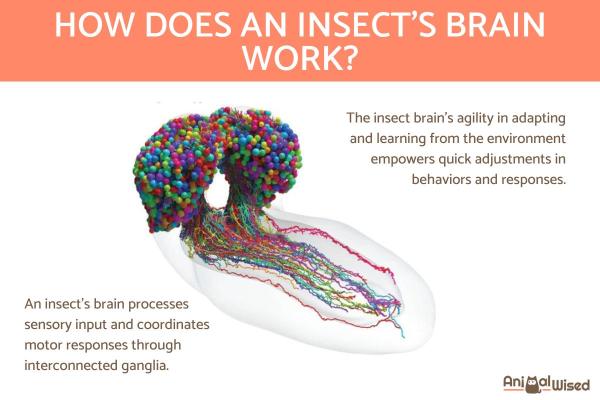
Insects, which form the most diverse group of animals, have achieved remarkable success, thriving not only in terrestrial ecosystems but also in aquatic environments. They possess distinctive characteristics such as segmented bodies divided into head, thorax, and abdomen, three pairs of jointed legs as arthropods, compound eyes, a pair of antennae, and an open circulatory system. These invertebrates boast a sophisticated nervous system comprising various structures.
In this AnimalWised article, we aim to provide insight into whether insects possess brains. Keep reading to delve further into this intriguing subject.
Do insects have brains?
Absolutely, insects do possess brains, albeit with distinctions from the brains of vertebrate animals. Insects have a nervous system that consists of a network of specialized cells, including a central mass of nerve tissue that serves as their brain.
The complexity of insect brains might not match that of larger animals, but it's remarkable how these compact structures allow insects to perform a range of behaviors, navigate their surroundings, and interact with other organisms.
Information processing in insects engages both their nervous and endocrine systems, each overseeing distinct functions. Notably, the nervous system elicits significantly quicker responses compared to the endocrine system. As a result, cellular reactions in insects commence through electrical impulses before triggering chemical processes.
Do all insects have brains?
The animal kingdom has creatures without brains, such as starfish, earthworms, jellyfish, corals, and sea lilies, but there are no brainless insects. Unlike these brainless organisms, insects, regardless of their smaller size and differing biology from vertebrates, possess neural systems with diverse structures, including well-defined brains. These intricate neural frameworks empower insects with the ability to navigate their environments with remarkable skill and adaptability.
Make sure not to overlook our other article, where we explore whether insects have blood.
What is an insect's brain like?
An insect's brain, although significantly smaller and organized differently than the brains of vertebrates, is a remarkable example of efficient neural architecture that suits their needs. Let's delve into the various parts of an insect's brain:
- Ganglia: insects have a collection of ganglia, which are clusters of nerve cells, acting as functional units in their nervous system. These ganglia are distributed throughout the insect's body and function somewhat like individual mini-brains for different segments.
- Protocerebrum, Deutocerebrum, and Tritocerebrum: within the insect's head, there are three main ganglia: the protocerebrum, deutocerebrum, and tritocerebrum. These ganglia play a pivotal role in processing sensory information and orchestrating motor responses. Despite having distinct functions, they work in harmony, interconnected and cooperating to facilitate intricate behaviors.
- Neuropil: this is a term used to describe the densely packed network of nerve fibers within ganglia where synapses occur. It's a region of intense synaptic connectivity where information is exchanged between neurons.
- Sensory processing: insect brains process sensory information received from their surroundings. This includes inputs from various sensory organs such as antennae, eyes, and mouthparts. For example, the protocerebrum is often associated with visual processing, helping insects perceive their environment.
- Motor coordination: ganglia in the thorax and abdomen are responsible for coordinating motor functions. They control muscle movements required for locomotion, flight, and other behaviors.
Insect brains are composed of interconnected ganglia that process sensory information, coordinate motor functions, and execute behaviors. Make sure you don't overlook our other article, in which we delve into the question of whether insects possess hearts.

How does the insect's brain work?
The brain of insects operates through a complex network of neurons and synapses, allowing them to process information, respond to stimuli, and execute various behaviors. Despite their relatively small size, insect brains exhibit remarkable functionality.
When insects encounter a stimulus from their environment, sensory receptors transmit signals to the brain. These signals are converted into electrical impulses that travel along nerve cells called neurons. Neurons in the brain then process and integrate these signals, forming a representation of the external world.
The insect brain consists of different regions known as ganglia, each responsible for specific functions. These ganglia communicate with each other and with peripheral nerves, enabling the coordination of motor responses and the regulation of physiological processes.
Neurotransmitters, chemicals released by neurons, play a pivotal role in transmitting signals between nerve cells. They bridge the gaps, or synapses, between neurons, allowing information to pass from one cell to another. This enables the transmission of signals across different parts of the brain and throughout the nervous system.
Insects' brains also exhibit plasticity, meaning they can adapt and change based on experience and learning. This allows insects to modify their behaviors in response to new information or environmental changes. Learning in insects involves strengthening or weakening connections between neurons, which leads to the acquisition and retention of knowledge.
Make sure you don't overlook this article about the world's largest insects.
If you want to read similar articles to Do Insects Have Brains?, we recommend you visit our Facts about the animal kingdom category.
- Brittanica. (2022). Insects . Available at: https://www.britannica.com/animal/insect/Nervous-system
- Klowden, M. (2013). In Physiological Systems in Insects (Third Edition), Terms for Understanding Nervous Systems . Available at: https://www.sciencedirect.com/topics/agricultural-and-biological-sciences/nervous-system

